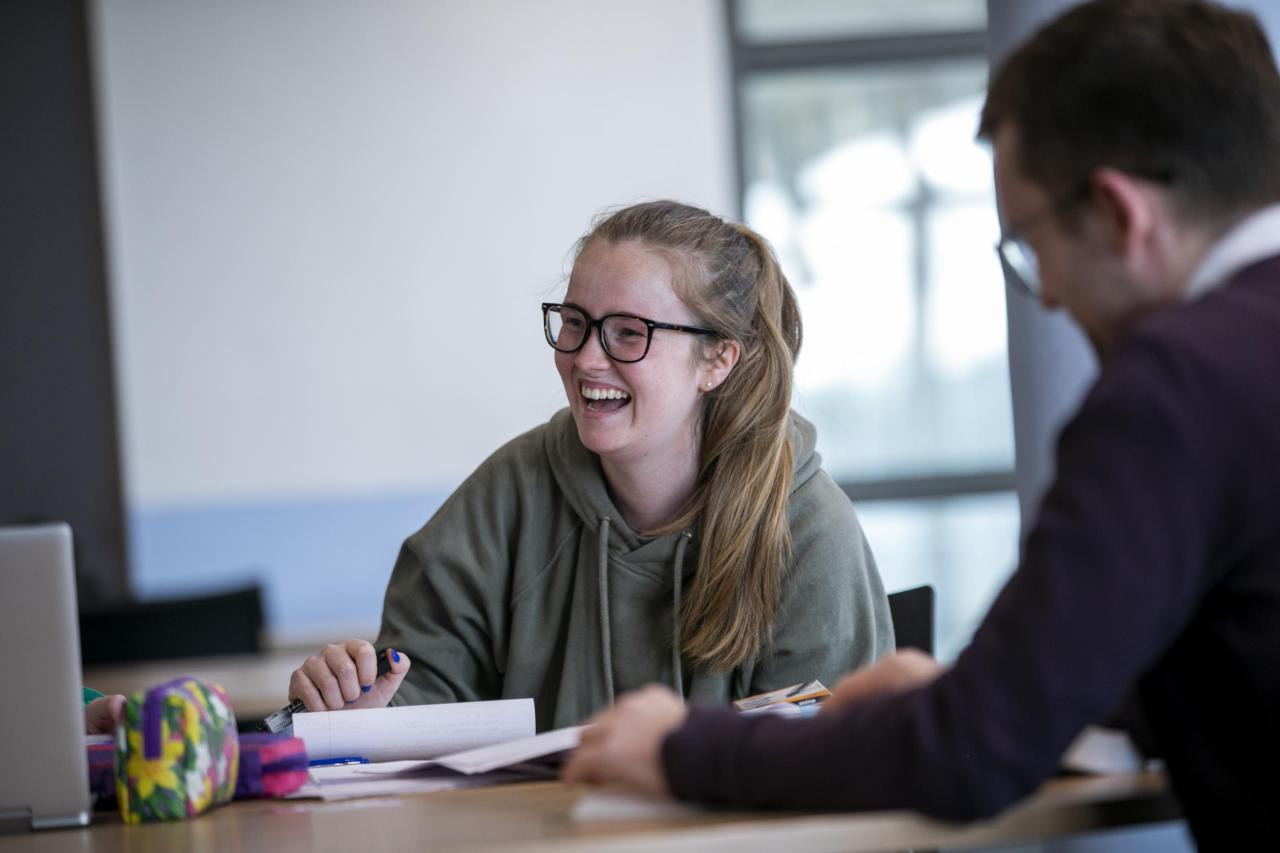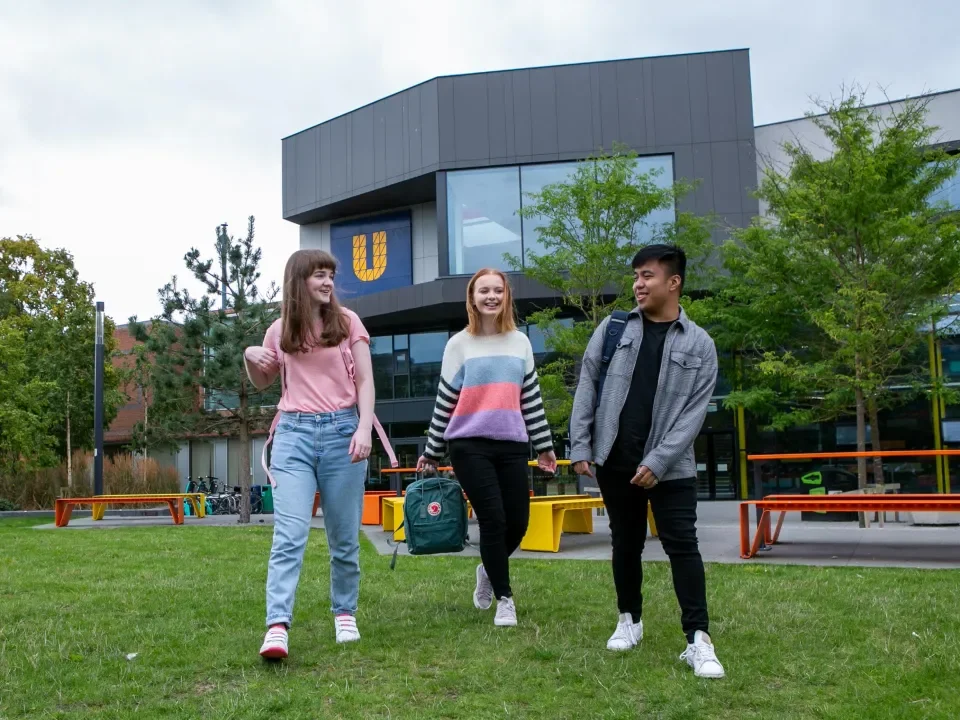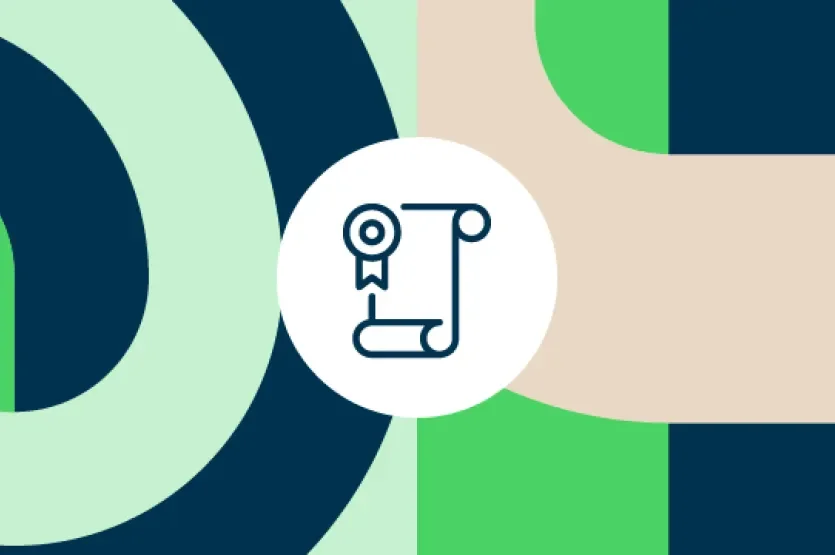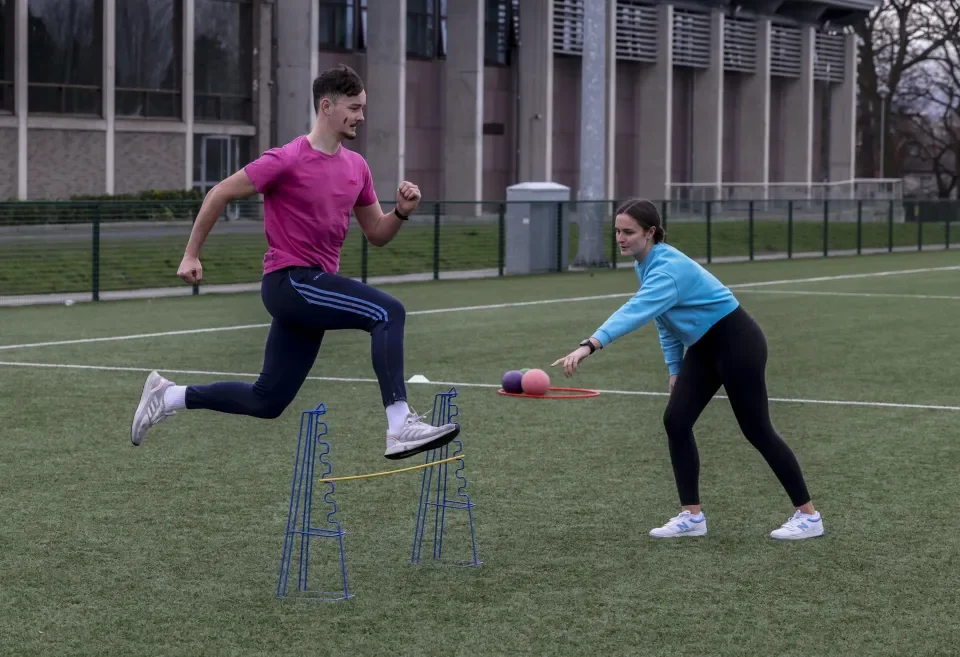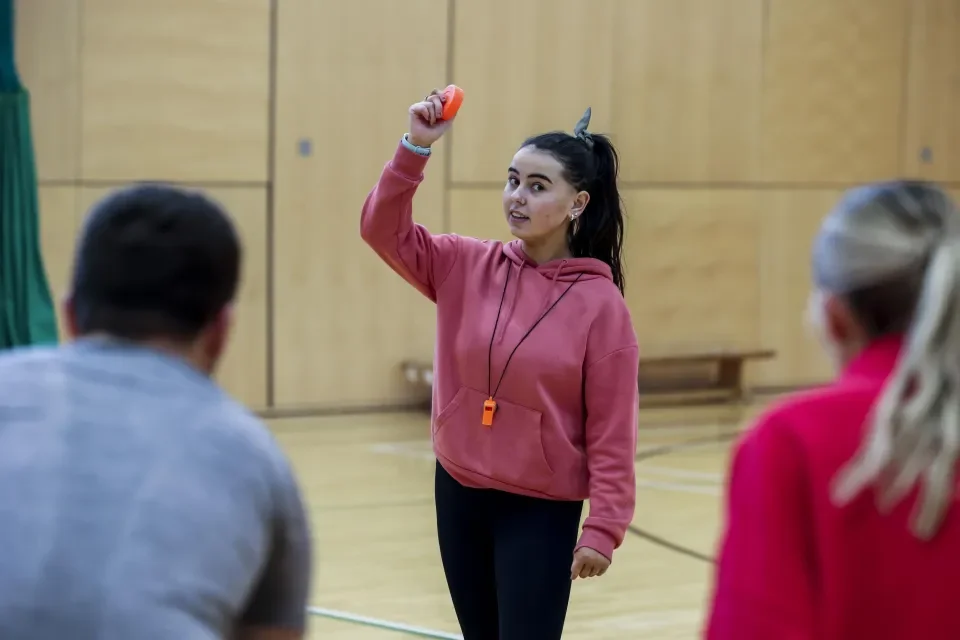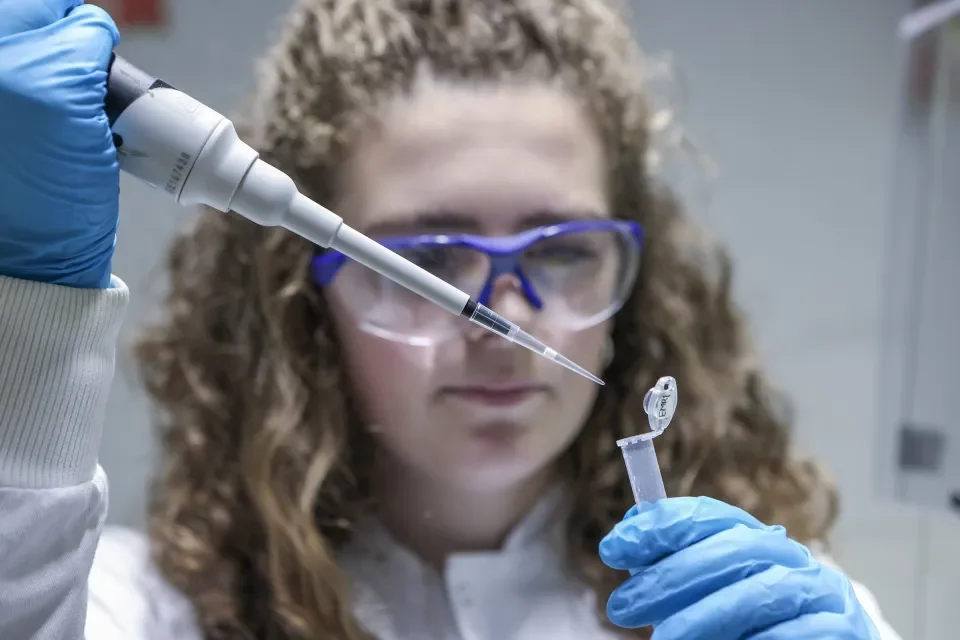Overview
Science and maths teachers work to develop their pupils’ understanding of the world around them and to educate future generations of scientists, engineers and technologists, not to mention citizens who are scientifically, mathematically and technically literate.
You’ll build a strong foundation in key areas of education, mathematics and either physics or chemistry, developing essential mathematical thinking skills, and scientific practices and ways of working throughout the four years. You’ll also study the history, psychology, sociology and philosophy of education, as well as undertaking curriculum studies.
Gaining practical real-world experience
During the course, you’ll spend at least 24 weeks on placement in post-primary schools and you can also complete a 12-week paid internship in industry as part of the STEM Teacher Internship programme. You’ll develop digital literacy and digital skills so you are ready to teach in remote or blended learning environments as well as face-to-face.
Once you’ve completed this Teaching Council-approved course, you’ll be qualified to teach mathematics and either physics or chemistry to Leaving Certificate level. Our graduates are known to be creative, highly skilled and highly motivated, and are much sought after as post-primary teachers. Those who decide teaching is not for them can pursue a career in technical training or scientific communication, for example, given their strong STEM training.
Why DCU
DCU People
Careers & Further Options
Careers
DCU Science and Mathematics Education graduates are actively sought after by Principals both in Ireland and internationally.
The majority of our graduates take up careers in post-primary education, teaching two of chemistry, physics or mathematics, as well as Junior Cycle science and mathematics.
Other graduates have pursued careers in industry-based training and development.
- Teaching
- Technical Training in Science based industries
DCU graduates are highly sought after by employers. Our Graduates work in environments ranging from large multinationals to SMEs, family businesses and start-ups across every sector.
DCU Careers Service has a number of learning and development initiatives in place for our students, giving them the skills they need for a successful career path.
Entry Requirements
In addition to the general entry requirements for admission to the university the following entry requirements apply
Minimum of O1 or H6 in Mathematics and minimum of O4 or H6 in one of Physics, Chemistry, Biology, Physics with Chemistry or Agricultural Science.
In addition to the general entry requirements for admission to the university the following entry requirements apply
GCE A Level D or GCE AS Level C Mathematics and GCE A Level D or GCE AS Level C in one of Physics, Chemistry, Biology, Physics with Chemistry, Agricultural Science or Environmental Technology.
Please visit our Admissions webpage for details on course requirements or how to apply to DCU.
Please visit our QQI FET webpage for details on DCU courses, open days, campus tours or school visits.
To apply to DCU, please visit www.cao.ie.
Mature entry is a competitive process. Applicants must demonstrate:
- a genuine interest in the programme(s) they are applying for
- academic experience and competency in their chosen field of study
- an ability to engage and succeed on the programme
All applicants must complete a statement of interest to be considered for the mature application route.
For further guidance on the mature application process please see the CAO Website
Applicants that have completed at least one year of study at NFQ Level 6, 7 or 8 at another institution may apply to continue their studies on a similar programme at DCU. There should be substantial overlap in content between the two programmes to be considered for a transfer. Results and other supporting documentation must be submitted to CAO by the closing date of 1st July. This is a competitive application process for a small quota of advanced entry places. Offers are made on a rolling basis until all places are filled. Early application is advised. Please note: Applicants should also consider applying through the appropriate route for first year entry to the programme they are interested in. This application process is only for advanced entry.
Additional Criteria
To qualify for advanced entry applicants must have completed a Science and Mathematics Education programme that includes similar education modules in their first year. Sufficient education modules must have been completed to be eligible for entry to 2nd year, thus we advise all applicants to also apply to enter first year of the programme through CAO.
International candidates are expected to have educational qualifications of a standard equivalent to those outlined above. In addition, where such candidates are non-native speakers of the English language they must satisfy the university of their competency in the English language. Click here for further information on international applications.
Course Structure
- Microteaching and Teaching Preparation
- Irish Education
- Calculus
- Linear Algebra
- Mathematical Thinking
- Year 1
- Micro Teaching and Teaching Preparation
Year 1 Options
Chemistry:
- Introductory Chemistry
- Fundamental Concepts for Chemistry Education
- Chemistry Laboratory
- Interdisciplinary Science
Physics:
- Light & Optics
- Motion & Energy
- Electricity & Magnetism
- The Universe
- Physics Laboratory
- Microteaching and Teaching Preparation
- Development Psychology
- Geometry
- Probability and Statistics
- Calculus of Several Variables
- Differential Equations
Year 2 Options
Chemistry:
- Spectroscopy and Physical Chemistry
- Organic Chemistry
- Inorganic Chemistry
- Kinetics and Thermodynamics
- Chemistry Laboratory
Physics:
- Quantum Physics
- Nuclear Physics and Relativity
- Solid State Physics
- Properties of Matter
- Physics Laboratory
- Teaching and Assessing Junior Cycle Science and Mathematics
- ICT Teaching Strategies and Professional Preparation
- Philosophical Perspectives on Education
- Equality in Education
- School Placement
- Discrete Mathematics
- Analysis
Year 3 Options
Chemistry:
- Analytical Techniques & Research Project
- Chemistry Topics through Laboratory
Physics:
- Electronics for Science Teachers
- Physics Laboratory & Research Project
- Curriculum Development and Evaluation
- Teaching in Online Learning Environment
- Diversity and Inclusion
- School Placement
- Research Project
- Abstract Algebra
- Teaching and Assessing Senior Cycle Mathematics
Year 4 Options
Chemistry:
- Teaching and Assessing Senior Cycle Chemistry
Physics:
Teaching and Assessing Senior Cycle Physics
Fees and Funding
Fees
How To Apply
Applicants presenting EU School Leaving/FETAC Level 5 examinations: Apply through the Central Applications Office (CAO) by 1st February or 1st May
To apply for this programme:
Candidates should apply directly here. Here's a quick step by step guide if you need help with your application.
Please provide
- Academic Transcripts for each and every year of study with English translation, if applicable.
- If applicable, provide evidence of competence in the English language as per DCU entry requirements.
Applications are accepted on an ongoing basis up to 1st July. All Non-EU candidates are advised to apply early, as places are limited.
All mature applicants apply through the CAO by 1st February. For further information and for special application procedures for mature students, please click here
Applications are made via the CAO Advanced Entry route which will open on the 5th of November to the 1st of July.
Please see Application Procedures or E-mail ugadmissions@dcu.ie.
Candidates required to apply through the CAO can apply online at www.cao.ie
Life On Campus
At DCU, our students can expect a unique campus experience. We are known for our excellent teaching and learning facilities, our active clubs and societies, and our great social and sporting facilities. All this makes DCU an exciting place to be.
DCU has three academic campuses; Glasnevin, St. Patrick’s and All Hallows (both in Drumcondra), all close to Dublin City centre.
They can be reached by public transport, Dublin Bus and Bus Éireann, with our Drumcondra campuses a ten minute walk from Drumcondra Train Station. Glasnevin is a 20 minute walk from St Patrick’s and All Hallows. They are also linked by Dublin Bus.
Each campus has a library (O’Reilly, Cregan and Woodlock Hall), study spaces, restaurants, and on-campus residencies. There are sports facilities on Glasnevin and St. Patrick’s, and there is a dedicated sports campus, St Claire’s, located near Glasnevin on the Ballymun Road.
DCU’s 19,000 students have access to exceptional teaching and learning facilities across our three academic campuses.
These include modern learning theatres, research centres, a new media and TV studio, radio/podcast studios, computer suites and advanced labs in the areas of Languages, Engineering, Physics, Chemistry and Biotechnology, as well as a Sports Performance centre and a training hospital ward. In 2021, we opened our first virtual reality ‘Leadership Lab’, which is located in our Business School.
We continue to improve and update our facilities. For example, construction of a new world-class STEM facility is underway on the Glasnevin campus. With capacity for an extra 3,000 STEM students, this facility will advance DCU’s international reputation for excellence in science and health, computing and engineering disciplines.
Studying in DCU isn’t just about course work. The university is rich in student life and activities.
There are more than 140 clubs and societies for students in DCU, with ‘Clubs & Socs’ days taking place on both the Glasnevin and Drumcondra campuses at the start of the academic year. They span everything from rugby to rock climbing, anime to jazz.
For many students, sport is an important part of the DCU experience. DCU’s Sports Complex boasts a 25 metre swimming pool, fitness centre gym, all-weather pitches and squash courts, as well as soccer, GAA and rugby pitches. DCU Dóchas Éireann, the university’s GAA club, is the largest third level Gaelic Games club in the country. Meanwhile, DCU Athletics has been Ireland’s highest achieving university club for many years. And DCU has dozens of other clubs to get involved in, from Archery to Weightlifting.
The Glasnevin campus is home to our purpose built, state-of-the-art student centre, The U, which serves the needs of a rapidly growing student body. Here, you will find the Student Leadership and Lifeskills Centre, performing arts and cultural spaces for students and the wider community, and the Entrepreneurship and Innovation Hub. Also located on our Glasnevin campus is The Helix, our renowned performing arts centre.
On our St Patrick’s campus, we have the Java Student Hub, a vibrant, warm and welcoming space where students can meet for coffee, play music, use the projector to watch events, or just relax. The walls of the Java Hub were designed based on the cultural history of St Patrick’s Campus, including the special references to the notable sporting history and history of the arts.
We have a number of academic, professional and social supports for students.
Student Advice & Learning Skills Centre - Offers a wide range of supports and services to students and advice
The Writing Centre - drop-in writing workshops for students through the academic year
Maths Learning Centre - provides maths support for students of all ability levels with maths modules
Student Learning - facilitate the transition from passive to active learning for students at DCU, by teaching study skills, nurturing critical thinking and building student confidence.
Careers work with students to help them on their professional journey into graduate employment.
Our student support team offers a comprehensive support programme, helping students make that all important transition into university life and focusing on building confidence and skills which are key to success at third level.
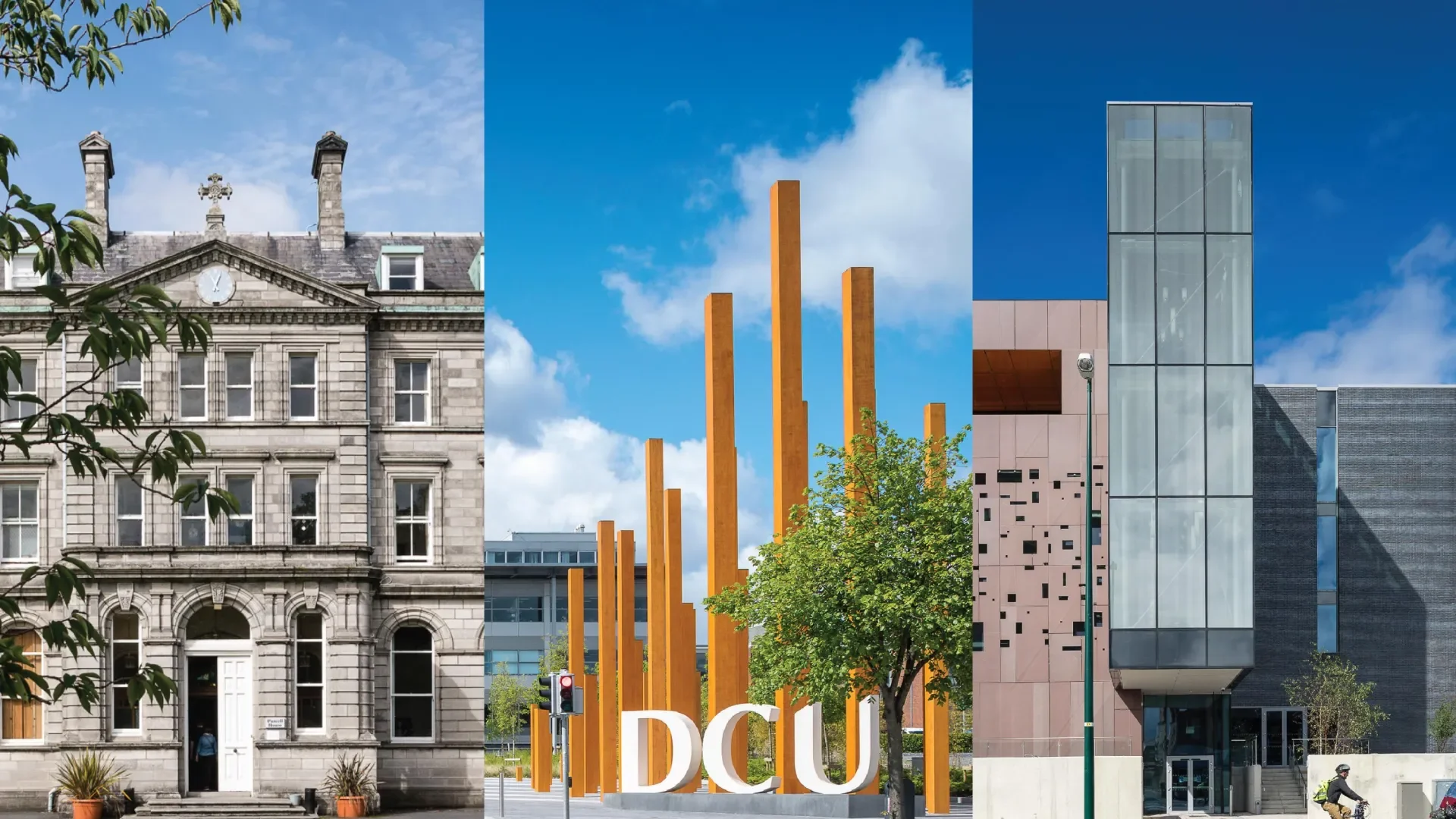
DCU Campus
FAQs
What courses are offered by the DCU Institute of Education?
DCU Institute of Education brings together students of education and provides a rich menu of undergraduate courses across all sectors from early childhood, to primary and post-primary and further and higher education. We offer a range of taught and research postgraduate courses at doctoral, masters, diploma and certificate level and have a distinguished record in providing continuing professional development.
Is there Garda vetting for students who study DCU Institute of Education courses?
Garda vetting is required for all students who have unsupervised access to children and vulnerable adults as part of their studies at DCU. Applicants must successfully pass the Garda vetting process in order to complete the registration process.
What are the potential teaching pathways for primary, post-primary and further education and training offered by DCU?
Primary Teaching Pathways
Undergraduate*
Postgraduate**
- Professional Master of Education (Primary Teaching) - DC970
* Please ensure that you consult minimum entry requirements and CAO points for all undergraduate programmes
** Please ensure that you consult minimum entry requirements for all postgraduate programmes
Post-Primary Teaching Pathways
Undergraduate*
- Bachelor of Religious Education & English or History or Music - DC010 | DC011 | DC012
- Bachelor of Education in Gaeilge and French or German or Spanish - DC013
- Bachelor of Education in Technology, Engineering and Graphics - DC015
- Bachelor of Science (Hons) in Science Education - DC203
- Bachelor of Science (Hons) in Physical Education with Biology - DC205
- Bachelor of Science in Physical Education with Mathematics - DC206
Postgraduate**
- Professional Master of Education (Post-Primary Teaching) - DC905
* Please ensure that you consult minimum entry requirements and CAO points for all undergraduate programmes
** Please ensure that you consult minimum entry requirements for all postgraduate programmes
Further Education and Training Teaching Pathways
Undergraduate*
- BSc (Hons) in Education and Training (Further, Adult and Continuing Education) - DC235
* Please ensure that you consult minimum entry requirements and CAO points for all undergraduate programmes

